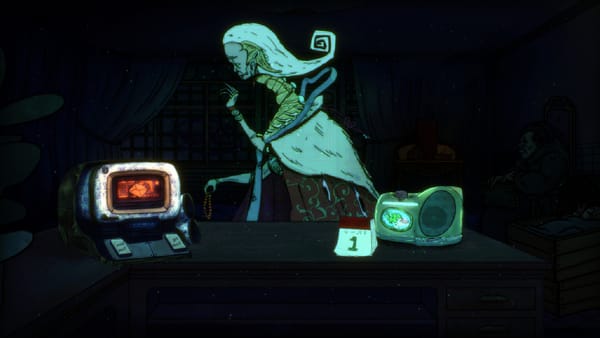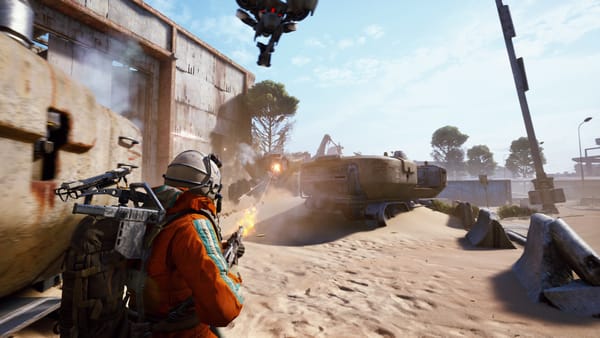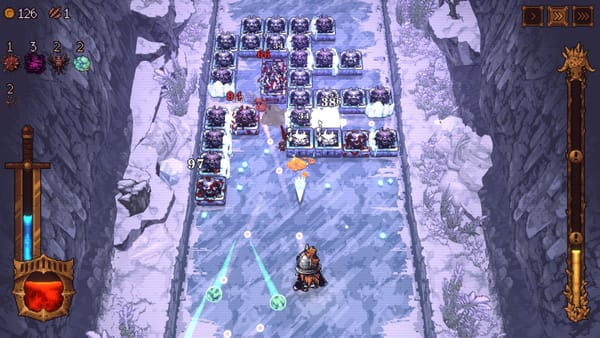Why can’t I stop thinking about Hellgate: London?
Am I the only the one still haunted by Flagship's ill-fated ARPG?

My guest for this issue of Multiplier goes by the online handle Alternalo. They are the developer behind the indie FPS/RPG Alterworld. Heads up: this issue is a little different to the usual format. I’m planning to try a few new things with Multiplier in 2025 so let me know what you think.
Fergus: Hellgate: London is a game that means a lot to me. As someone who caught the Diablo bug quite early and then went on to lose hundreds of hours to World of Warcraft (but struggled to afford or justify the subscription fee), it felt like the perfect union of the two. It had more than its fair share of bugs and flaws but those shortcomings were easily offset by the fact that it was so utterly unlike anything else at the time in terms of its aesthetics and genre. In the years since, I’ve revisited the game multiple times, I’ve recorded a podcast about the books it inspired and even penned a sprawling feature about the behind-the-scenes troubles faced by the developer behind the game.
It’s been years but I cannot stop thinking about Hellgate: London and from the look of Alterworld, I can’t help but suspect you might be in the same boat. What’s your relationship to the game? What aspects of it most directly inform the game you’re trying to build? What is it about the failed follow-up to Diablo 2 that looms so large?
Alternate: Hellgate: London was a huge inspiration to me, and I also helped the London 2038 team a lot in order to resurrect and improve it. I really liked the setting. It's not your typical fantasy or futuristic one, [but] a perfect middle ground in between and still has room for magic, modern weaponry or even melee combat. I think due to the setting people find it closer to reality and they can get emotionally attached to it more, not to mention there aren't many (if any) other games with these specific combinations of features, so I tried to fill in the [hole] as much as I can with Alterworld.

Fergus: One of the big through-lines of my writing about Hellgate is this idea that it’s ahead of its time. Even if the team at Flagship were held back by their inexperience with making shooters, the line between Hellgate and stuff like Destiny, Borderlands and Warframe is fairly easy to see.
Of course, even if we do accept this idea that Hellgate was the first looter-shooter, that's not to say there isn’t any room for improvement. When it comes to Alterworld, what differences do you see between Hellgate and the many that have followed in its footsteps? What are some of the specific areas where you turned to more modern loot-shooters for inspiration versus keeping to the template set out by Hellgate?
Alternalo: Hellgate was much more permissive and had a specific feature set which made it easier for players to hop in and enjoy playing it. While the follow-up games were also great, I always felt like something which Hellgate had [was] missing and I feel the same with looters released recently. As a result I'm trying to make Alterworld as permissive as I can, and encourage players to try out various builds while making sure they will work in the end, unlike a lot of games I see where only a specific set of builds work and you'll mostly struggle with anything else.
Randomized levels and events are also a key factor for replayability, it's always nice to see stuff you rarely encounter or see for the first time after several playthroughs. Since I'm a solo [developer] I had to cut and simplify a few things to make it work in a reasonable time frame, but overall I always aimed for making the game enjoyable and easy to understand.

Fergus: Balancing randomness and replayability with scope is a tricky one, for sure. Even best-in-class ARPGs end up in this problem where you’re torn between having something that’s legible to newcomers and deep enough to keep those already playing still there. If Torchlight is one side of that coin, Path of Exile is the other.
Even Hellgate had this problem to some degree, so it’s no surprise to hear you’re running into it with Alterworld. What’s ended up on the cutting room floor? Are those excesses something you might return to later down the line? How many of those subtractions are based on the work you did with the London 2038 team?
Alternalo: I generally had to cut things which would dramatically increase the time of production, so there are no NPCs, dialogs or quests at the moment. However, I'm considering adding smaller tasks and events in the final products only because they help leading players from A to B. There IS a backstory though but aside [from] the intro which appears like the intermissions you've probably seen in the first Quake game, I'm using environmental storytelling as it not only blends into the fast paced gameplay more [and] fits on the limited resource I can spend on the project.
Another example is that I don't have money as a currency in the game, as there aren't any vendors you could purchase from. In most other games they only serve as a point to sell your loot and offer nothing remotely interesting to buy anyway, so I thought i could use Hellgate's item dismantling system in a way where there is only one type of material (scraps) and use that as a resource for crafting/augmenting your items. Combined with the auto-dismantler feature which is available right from start, this system suddenly makes every dropped item valuable as they'll produce this material upon dismantling.

Fergus: That’s a really savvy bit of streamlining. Money is always such a tricky thing in action RPGs like Hellgate. More often than not, you end up with more cash than you know what to do with. Even then, the usual money sinks like respecs or cosmetics can either be too few or too shallow to make the in-game economy make all that much sense. I think that, if anything, that tendency away from unnecessary complexity speaks to the biggest difference between the game you’re making and the one that inspired it.
If Hellgate represented the next stop on Brevik and Schaefer brothers’ journey towards making a more MMORPG-like action RPG, Alterworld feels like a zag in the other direction. It’s entirely single-player, with a clearer focus on gunplay that’s a natural contrast to the relative afterthought it was for Flagship. At times, it almost feels like Alterworld is less of a spiritual successor to Hellgate and more of an alternative vision of what that game could have been.
In some respects, that’s the most radical thing about it. It’s easy for anyone to imagine that the story of Hellgate and Flagship could have gone down differently. It takes more than just enthusiasm to bring that world to life.




